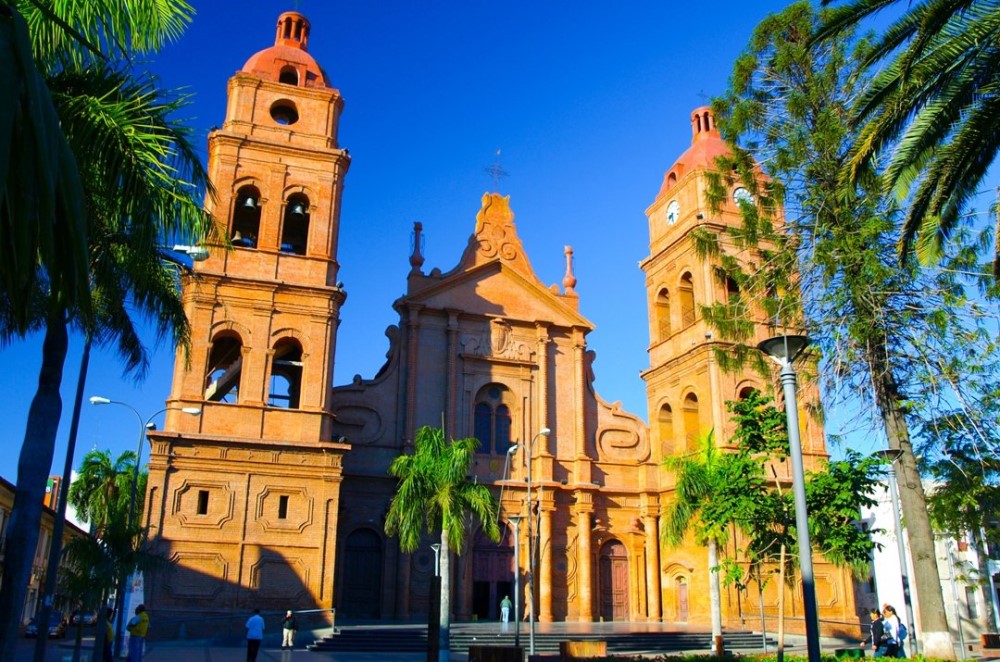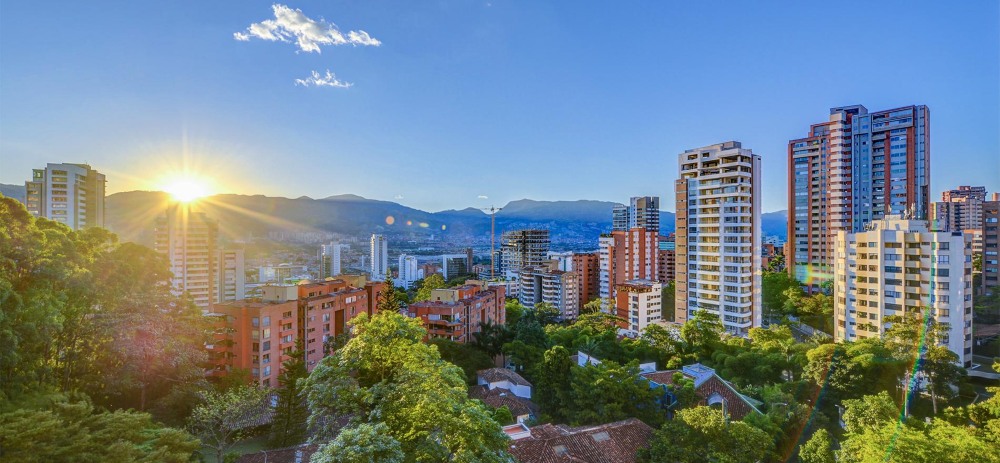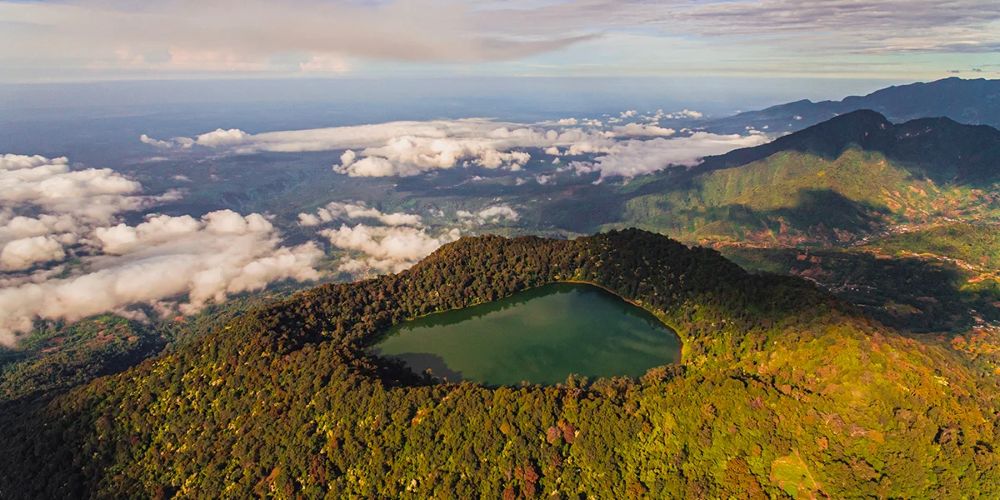Santa Cruz de la Sierra, or Santa Cruz, is Bolivia’s largest city and the country’s economic heart. It combines a rich history and culture with a surprising modernity, while offering a pleasant tropical climate and breathtaking natural landscapes.
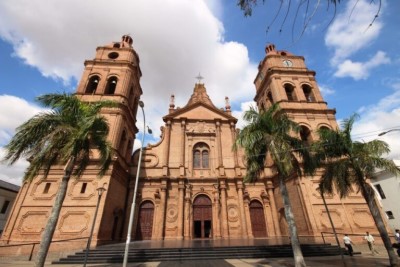
Located in the eastern plains of Bolivia, Santa Cruz is a dynamic city at the heart of the department of the same name. Founded in 1561 by the Spanish captain Ñuflo de Chávez, the town was moved several times before settling in its current location on the banks of the River Piraí. Today, Santa Cruz is a fascinating blend of colonial history, natural heritage and contemporary culture.
The centre of the city is the Plaza 24 de Septiembre, a lively and bustling square. Surrounded by colonial buildings, cafés and an impressive cathedral, this historic square reflects Spain’s colonial heritage and serves as a starting point for exploring the city. The Catedral Metropolitana Basílica Menor de San Lorenzo, with its picturesque wooden vaults and ornate silver altar, stands proudly in the square. Its tower offers a panoramic view of the city, while its museum of sacred art exhibits wooden sculptures, silverware and historical archives.
To discover the country’s contemporary artists, the Casa Melchor Pinto and the Museo de Arte Contemporáneo offer exhibitions and events covering all forms of artistic expression.
Gastronomy: Modern and traditional flavours
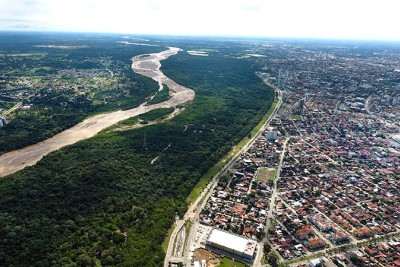
Santa Cruz de la Sierra is a city that harmoniously blends modernity and tradition in its gastronomy. Its trendy districts, such as Equipetrol, are packed with restaurants, bars and nightclubs, offering a diverse range of local and international dishes. Visitors can enjoy Majao, a speciality made from dried meat or duck, served with rice and fried eggs, often spiced up with ground chilli and accompanied by fried plantains. Another traditional dish, Sopa de maní, is a thick soup made with peanuts and vegetables, sometimes enriched with chicken, embodying the spirit of the region’s flavours.
Local markets offer a unique culinary wealth, combining innovation and tradition. Dishes are often served with yuca frita (fried manioc), appreciated for its crunchy texture. When it comes to drinks, chicha is a must: this fermented drink made from maize or peanuts is consumed by everyone: a delicious treat!
Santa Cruz’s modern restaurants also explore the use of local ingredients, creating unique culinary experiences that showcase the region’s biodiversity and culture. Whether in the city’s lively districts or in its colourful markets, Santa Cruz de la Sierra promises an unforgettable gastronomic adventure for gourmets and the curious in search of new flavours.
Discovering the region
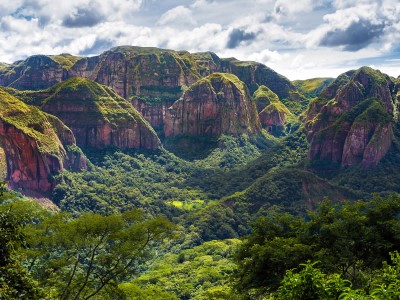
The landscapes around Santa Cruz offer a diversity of fascinating ecosystems and nature-based activities. The Lomas de Arena Regional Park, 12 km south of the city, boasts impressive sand dunes, Chaco rainforests and savannahs rich in wildlife. Biocentro Güembe, a 24-hectare nature sanctuary to the north, is a paradise for biodiversity lovers, home to a butterfly house, bird park and lush gardens. Nearby, the 186-hectare Santa Cruz Botanical Garden preserves the local flora of the plains, offering ecological trails amidst chaqueña and subtropical forests, where visitors can spot capybaras and caimans.
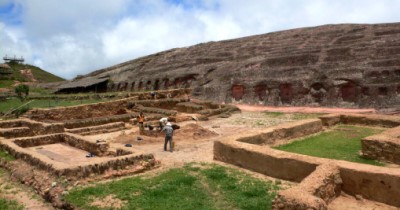
For history buffs, the El Fuerte de Samaipata archaeological site, a UNESCO World Heritage Site, is a pre-Columbian relic nestled in the mountains that bears witness to the architectural ingenuity of the Incas and Chanes. The region is also home to Amboró National Park, an exceptional reserve for nature lovers, with its varied flora and fauna. The Jesuit missions of Chiquitos, also a UNESCO World Heritage site, boast unique colonial architecture, combining natural beauty with thousands of years of history.
Santa Cruz de la Sierra is a fascinating city where modernity and history meet. From lively squares to natural parks and authentic gastronomy, it offers a unique Bolivian experience, whether for cultural tourism, outdoor adventures or discovering the region’s natural wealth.

